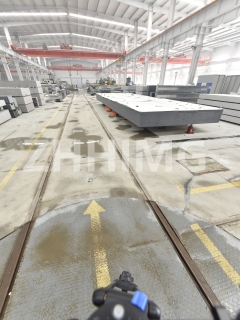Granite apparatus is a type of laboratory equipment that is widely used in different industries such as chemical, medical, and pharmaceutical. This equipment is made of granite, which is a type of natural stone that is known for its durability and stability. Despite its advantages, granite apparatus also has disadvantages. In this article, we will be discussing the advantages and disadvantages of granite apparatus.
Advantages of Granite Apparatus:
1. Durability: Granite is an extremely tough and long-lasting material, making it an ideal choice for laboratory equipment. Granite apparatus can last for several years without showing any signs of wear and tear.
2. Stability: Granite has a low coefficient of thermal expansion, meaning it does not warp or bend when exposed to changes in temperature. This makes it ideal for use in environments where temperature fluctuations are common.
3. Non-porous: Another advantage of granite is that it is a non-porous material. This means it has a low absorption rate, making it resistant to chemicals, stains, and odors.
4. Easy to clean: Granite is easy to clean, making it an ideal material for laboratory equipment. It can be cleaned using regular cleaning agents without the risk of damaging the surface or affecting the integrity of the equipment.
5. Aesthetic appeal: Granite has a natural beauty that adds to the aesthetic value of a laboratory. It is a versatile material that comes in a wide range of colors and patterns, which can match any laboratory décor.
Disadvantages of Granite Apparatus:
1. Weight: One of the primary disadvantages of granite apparatus is its weight. It can be extremely heavy and difficult to move, which can be a problem when it comes to relocating or rearranging the laboratory.
2. Fragility: While granite is a durable material, it can still chip or crack under the right circumstances. Dropping heavy objects on the surface or applying excessive pressure can cause damage to the equipment.
3. Expensive: Granite apparatus can be more expensive than equipment made from other materials. The cost of production and installation can be high, which can be a problem for smaller laboratories with limited budgets.
4. Limited design options: While granite comes in a range of colors and patterns, its design options are still limited compared to materials such as plastic or glass. This can be a problem for those who want a more customized laboratory.
Conclusion:
In conclusion, granite apparatus has several advantages and disadvantages. Its durability, stability, non-porous nature, ease of cleaning, and aesthetic appeal make it an ideal material for laboratory equipment. However, its weight, fragility, high cost, and limited design options can make it a less appealing choice for some laboratories. Despite its disadvantages, granite apparatus remains a popular choice for many laboratories due to its many advantages.
Post time: Dec-21-2023

